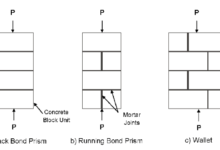The Impact of Pre-Employment Assessments on Candidate Experience: 5 Key Factors

Organizations are utilizing Pre-Employment Assessment Tests more than ever to help identify top talent and make better hiring decisions. While these assessments can provide valuable insights into a candidate’s skills, abilities, and job fit, they can also significantly impact the candidate’s overall experience and perception of your employer brand.
According to one study, 82% of candidates say that the interview experience impacts their decision on where they want to work. As pre-hire assessments become a standard part of most interviewing processes, companies must understand how these assessments shape candidate impressions.
Pre-employment assessment companies offer a wide range of evaluation tools – from job knowledge and personality tests to cognitive ability assessments, skills assessments, coding challenges, and more. Regardless of the specific tests utilized, five key factors will determine if candidates have a positive or negative experience:
Transparency and Clear Communication
From the initial job posting, candidates should understand upfront that pre-employment assessments will be part of the hiring process. Clearly outline what types of evaluations will be conducted, how long they will take, and at what stage of the interview process the assessments occur. Don’t surprise candidates with unexpected hoops to jump through – that can come across as inconsiderate and disrespectful of their time.
Relevance to the Role
Even if an assessment is well-designed, candidates will be frustrated if they don’t understand how it relates to the job they applied for. Always explain the relevance and purpose of any assessment so candidates recognize you are evaluating qualities directly applicable and necessary for success in that specific role. Seemingly unrelated assessments feel like hoop-jumping for the sake of it, which diminishes the experience.
Assessment Difficulty and Fairness
While pre-employment tests need to properly validate skills and abilities, they shouldn’t be so difficult that they discourage or alienate strong candidates. Many job seekers see overly complex assessments as screening devices rather than evaluation tools, causing them to disengage from the process or develop negative impressions of the company.
Well-designed assessments should challenge candidates in relevant ways that test their qualifications without being misleading or “tricky.” They should also be designed to account for different learning styles and demographics to promote inclusivity and diversity.
User Experience and Ease of Completion
The actual test experience itself matters tremendously. Pre-employment tests that are outdated, clunky, overly long, or not mobile-optimized reflect poorly on an organization. Look for modern assessments that deliver a smooth, engaging user experience across devices. Assessments with intuitive navigation, clean designs, and clear instructions help put candidates at ease.
Logistical factors like testing locations, proctor requirements, and scheduling procedures can also positively or negatively impact the assessment experience. Top pre-employment assessment companies prioritize convenience and flexibility for candidates with options like online proctoring and on-demand testing.
Well-Timed and Prompt Feedback
Candidates want to know where they stand in the process and get feedback within a reasonable timeframe – something too many companies fail to provide after assessment stages. Leaving candidates hanging with vague next steps about “getting back to them with results” leads to frustrating radio silence and negative impressions that undermine the entire experience.
Best-in-class organizations provide expected timeline transparency upfront. They automate prompt communication with candidates about the next steps or status updates. For candidates who don’t advance, personalized feedback reports about their assessment performance are the polished way to reject someone while providing value.
By optimizing these five aspects of the candidate assessment experience, organizations can positively showcase their employer brand while identifying best-fit hires. Conversely, companies that skimp on candidate experience may end up losing top talent to competitors with more polished assessment processes.
Balancing Candidate Experience with Hiring Efficiency
There’s no question that pre-employment assessments result in higher quality hires and cost savings versus traditional resume-based screening alone. But those gains are diminished if assessments drive candidates away due to poor experiences.
Pre-employment assessment companies that understand the importance of positive candidate assessment experiences innovate through tools that simultaneously improve efficiency and enhance the candidate journey:
- AI-powered assessments that provide hyper-personalized and tailored assessment experiences based on role requirements
- Assess-from-home solutions that blend seamless online proctoring with stringent security and integrity measures
- Online assessment platforms that gamify evaluations with immersive, user-friendly assessment interfaces
- Intelligent automation that streamlines communication and scheduling while eliminating manual administrative work
Ultimately, the pre-employment assessment experience serves as an authentic preview of an organization’s people processes and how they value candidates as well as employees. With thoughtful design and prioritization of candidate experience factors, organizations can achieve the optimal balance: identifying top talent efficiently while showcasing their employer brand positively at every stage.





